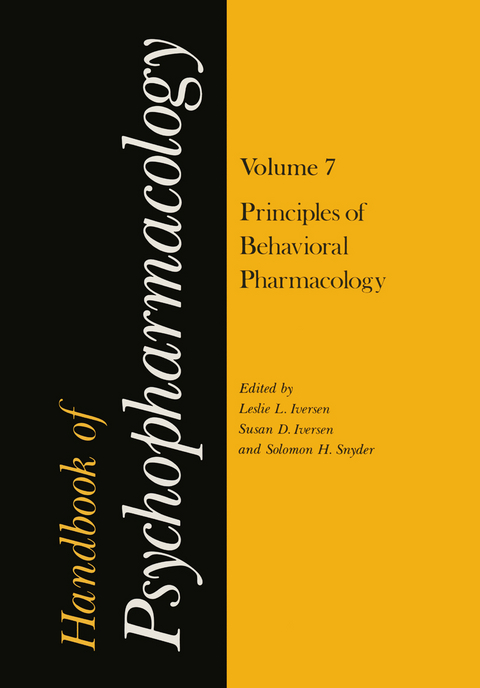
Handbook of Psychopharmacology
Springer-Verlag New York Inc.
978-1-4613-4216-8 (ISBN)
Methods for Studying Unconditioned and Conditioned Behavior.- 1 The Contribution of Ethological Techniques to the Study of Drug Effects.- 2 A Critique of the Methods Available for the Measurement of Spontaneous Motor Activity.- 3 The Study of Sequences of Motor Behavior.- 4 Schedules of Reinforcement.- 5 Control of Behavior by Noxious Stimuli.- 6 Theories of Reinforcement, Drive, and Motivation.- 7 New Considerations in the Neuropsychology of Motivated Behaviors.- 8 Animal Behavioral Models of Relevance to Psychiatry.- Factors That Influence Behavioral Responses to Drugs.- 9 Pharmacogenetics.- 10 Experimental and Clinical Aspects of Drug Dependence.- 11 Social Experience as a Determinant of Normal Behavior and Drug Effect.- 12 Developmental Psychopharmacology.
| Zusatzinfo | XVI, 454 p. |
|---|---|
| Verlagsort | New York, NY |
| Sprache | englisch |
| Maße | 170 x 244 mm |
| Themenwelt | Sachbuch/Ratgeber ► Natur / Technik ► Garten |
| Geisteswissenschaften ► Psychologie | |
| Medizin / Pharmazie ► Medizinische Fachgebiete ► Pharmakologie / Pharmakotherapie | |
| Medizin / Pharmazie ► Medizinische Fachgebiete ► Psychiatrie / Psychotherapie | |
| Medizin / Pharmazie ► Pharmazie | |
| ISBN-10 | 1-4613-4216-3 / 1461342163 |
| ISBN-13 | 978-1-4613-4216-8 / 9781461342168 |
| Zustand | Neuware |
| Haben Sie eine Frage zum Produkt? |
aus dem Bereich


